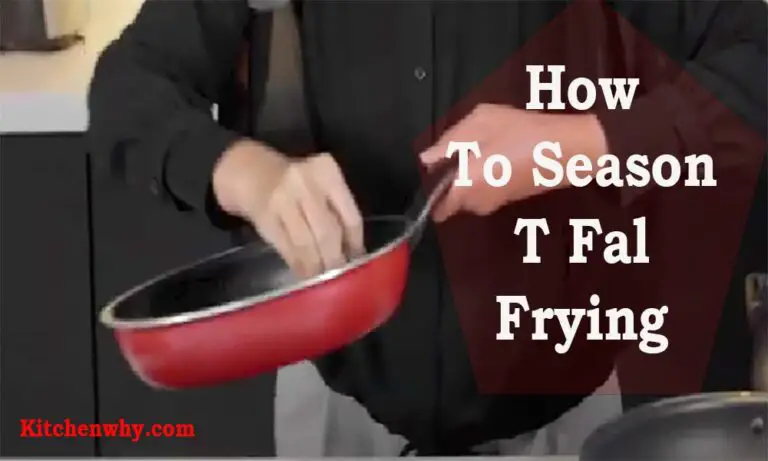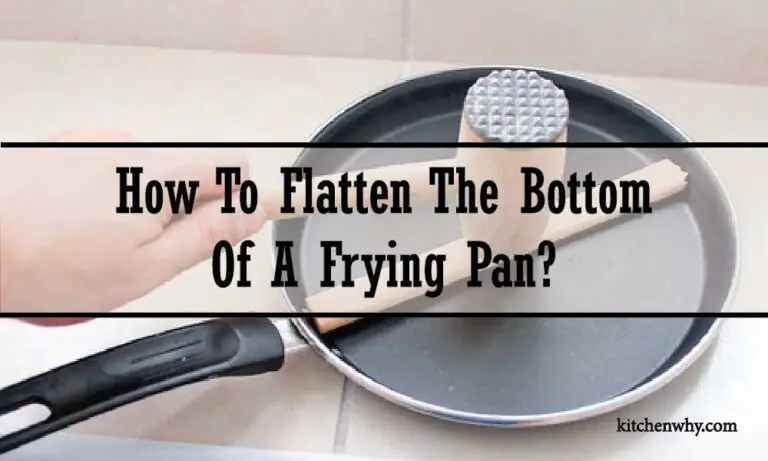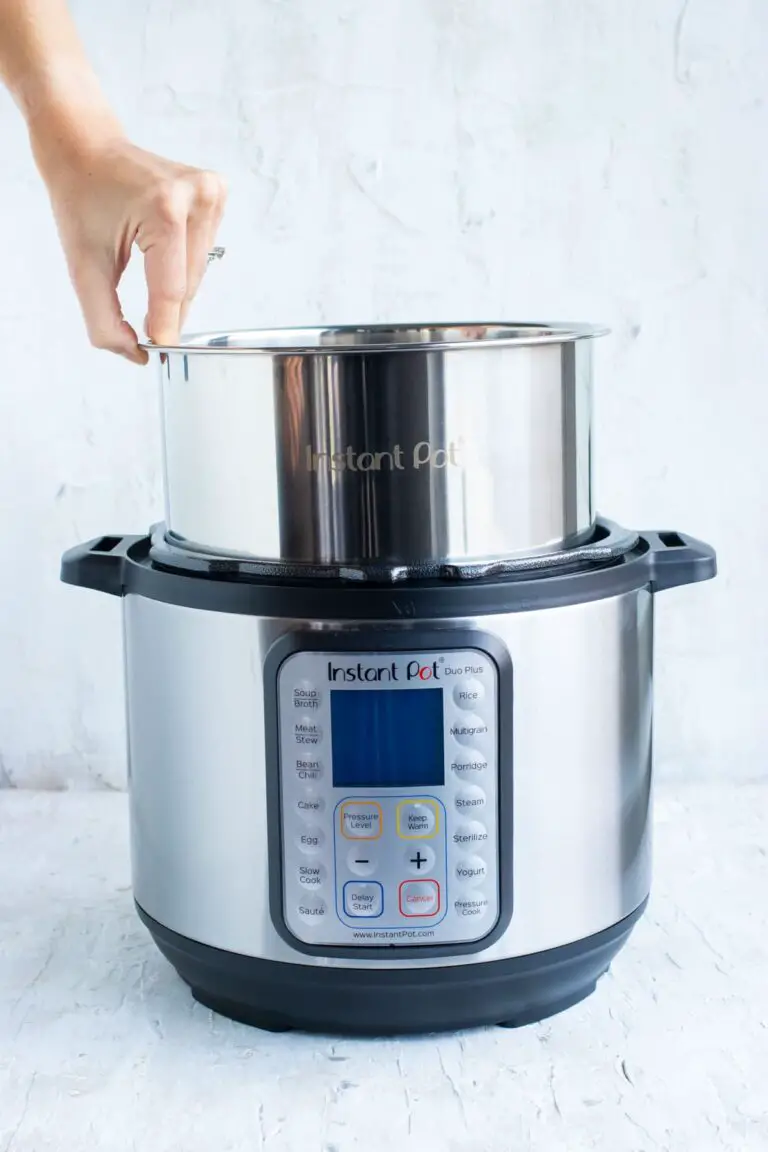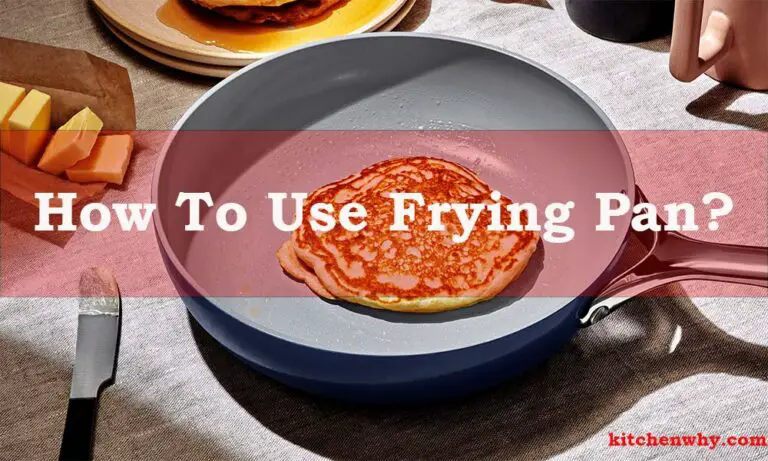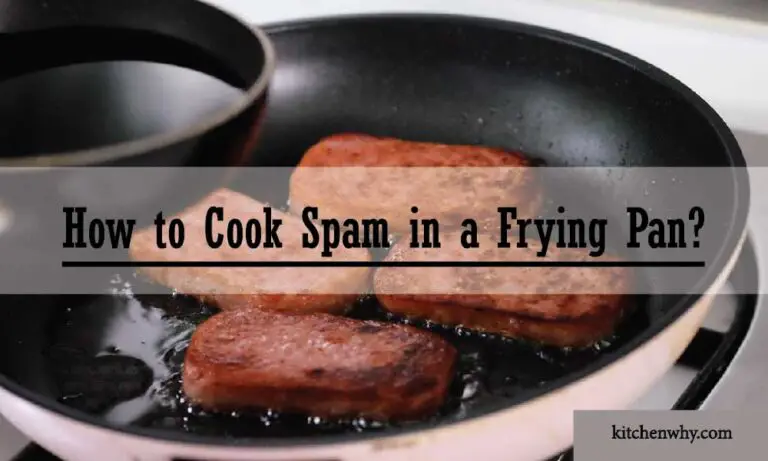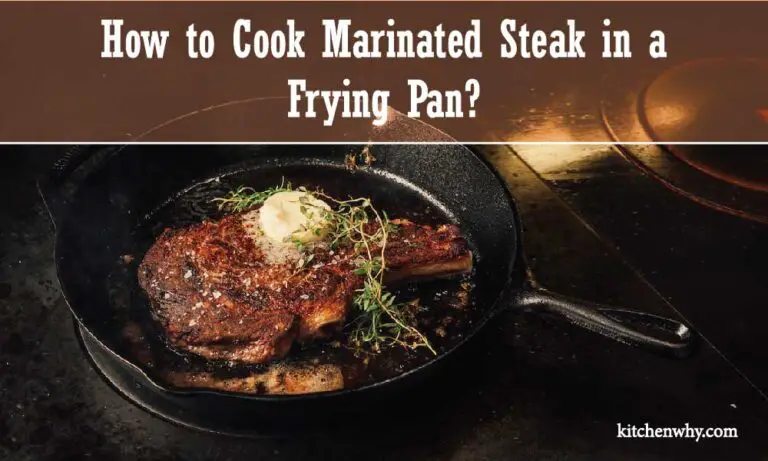How To Season Frying Pan Cast Iron? 6 Easy Steps

Cast iron frying pans are incredibly durable and versatile, making them a popular choice for cooking enthusiasts. However, if not properly seasoned, the surface of the cast iron can become sticky and prone to rusting. So, how to season frying pan cast iron is an essential technique every home cook should know.
To season a cast iron frying pan, start by washing it with warm water and soap. Then, dry it completely and apply a thin layer of oil. Please place it in an oven at 375 degrees Fahrenheit for an hour. Repeat this process every few months to maintain its non-stick surface.
Seasoning your cast iron frying pan creates a non-stick surface and helps to protect it from rust and corrosion. In this article, we will guide you through seasoning your cast iron frying pan, step-by-step, so that you can enjoy cooking with it for years to come.
How to Season Frying Pan Cast Iron?
Seasoning a cast iron frying pan is essential to ensure its longevity and performance. A well-seasoned cast iron pan will not only prevent food from sticking but also create a natural non-stick surface.
Here is a step-by-step guide on how to season frying pan cast iron.
Step 1: Preheat Your Oven

Before you start seasoning your cast iron frying pan, preheat your oven to 375 degrees Fahrenheit.
Step 2: Clean Your Cast Iron Frying Pan
Using hot water and a stiff-bristled brush, clean your cast iron frying pan thoroughly. Avoid using soap or harsh cleaning agents, as they can strip the seasoning from your pan. Once you’ve scrubbed away any food particles, dry your pan with a towel.
Step 3: Apply a Thin Layer of Oil
Next, apply a thin layer of oil to your pan. You can use vegetable oil, canola oil, or any other oil with a high smoke point. Make sure to coat the entire pan, including the handle.
Step 4: Bake Your Cast Iron Frying Pan
Place your pan upside down on the middle rack of your preheated oven. This will allow the excess oil to drip off and prevent any pooling. Let it bake for an hour.
Step 5: Let Your Cast Iron Frying Pan Cool
After an hour, turn off the oven and let your cast iron frying pan cool completely. Once it’s cooled, you can repeat the seasoning process if necessary.
Step 6: Maintain the Seasoning
After each use, clean the pan with hot water and a stiff brush, not using soap. Dry the pan thoroughly and apply a light layer of oil to the surface. Store the pan in a dry place, and avoid stacking other pans on top of it. With proper care, your cast iron frying pan will last for generations.
That’s all about How To Season Frying Pan Cast Iron. Seasoning a cast iron frying pan is a simple process requiring time and patience. It’s worth the effort, as a well-seasoned pan will provide a natural non-stick surface and last for generations.
Follow these steps to season your cast iron frying pan and enjoy cooking with it for years.
How Do I Know If My Cast Iron Needs Seasoning?

There are a few ways to tell if your cast iron needs to be seasoned:
- If your cast iron has rust spots, it’s time to re-season it.
- If food sticks more than normal to your cast iron, it may be time to re-season it.
- Your cast iron is no longer shiny and looks dull. It may need to be re-seasoned.
- If your cast iron has water spots after you clean it, it may be time to re-season it.
To re-season cast iron, wash it well with hot water and gentle soap, let it dry fully, and then put a thin layer of oil on its surface. Bake the cast iron for about an hour in a heated oven, then let it cool fully before using it again.
What Happens If Cast Iron Is Not Seasoned?
If cast iron is not properly seasoned, it can lead to a number of issues:
- Sticking: Without seasoning, food can stick to the surface of the cast iron, making it difficult to cook and clean.
- Rust: Cast iron is prone to rust if it is not properly seasoned, which can cause it to deteriorate over time.
- Uneven heating: Cast iron that is not seasoned can heat unevenly, leading to hot spots and burnt food.
- Flavours: If cast iron is not seasoned, it can absorb and transfer flavours from previous meals, affecting your food’s taste.
Read My More Informative Post:
Frequently Asked Questions
Cast iron frying pans are a popular choice for cooking enthusiasts. They are durable, long-lasting, and versatile. However, one of the most important aspects of maintaining a cast iron frying pan is seasoning it properly.
Here are some frequently asked questions about how to season frying pan cast iron.
1. What is seasoning?
Seasoning is the process of coating a cast iron frying pan with a layer of oil and heat. This creates a non-stick surface that is resistant to rust and corrosion. The oil fills in the pores of the cast iron, making it smooth and easy to clean. It also gives the pan a natural non-stick surface without the need for commercial non-stick coatings.
2. Why is seasoning important for a cast iron frying pan
Seasoning is important for a cast iron frying pan because it protects the surface from rust and corrosion and creates a non-stick surface that makes cooking and cleaning easier. A properly seasoned cast iron frying pan can last for generations with proper care and maintenance.
2. How often should I season my cast iron frying pan?
You should season your cast iron frying pan whenever it starts to look dull or if food is starting to stick to the surface. You can also season it after cleaning it with soap and water. Generally, you should season your cast iron frying pan once every few months or as needed. If you use your cast iron frying pan frequently, you may need to season it more often.
It’s important to note that seasoning your cast iron frying pan too often can cause oil buildup and make the surface sticky. You only need a thin layer of oil to season your pan, so wipe off any excess oil before heating it.
3. What kind of oil should I use to season my cast iron frying pan?
You can use oil to season your cast iron frying pan, but some oils work better than others. Vegetable oil, canola oil, and flaxseed oil are popular choices. Flaxseed oil is perfect because it creates a hard, durable surface resistant to scratches and wear. Avoid using butter, margarine, or olive oil to season your cast iron frying pan because they can burn and leave a sticky residue.
4. Can I use soap to clean my cast iron frying pan after seasoning it?
Yes, you can use soap to clean your cast iron frying pan after seasoning it. Contrary to popular belief, soap will not harm the seasoning on your pan. However, avoiding using abrasive scrubbers or steel wool is essential, as this can scratch the pan’s surface and remove the seasoning. Instead, use a soft sponge or cloth to clean the pan.
5. What should I do if my cast iron frying pan starts to rust?
If your cast iron frying pan starts to rust, don’t panic. Rust is a common problem with cast iron, but it can be easily fixed. First, use a scrubber or steel wool to remove the rust from the pan’s surface. Then, rinse the pan with water and dry it thoroughly. Finally, apply a thin layer of oil to the surface and heat it in the oven or stove to re-season the pan.
It’s vital to address rust on your cast iron frying pan as soon as possible, as it can spread and cause more damage to the pan. With proper care and maintenance, your cast iron frying pan can last for generations.
The Best Way To Season a Cast Iron Skillet
Final Words
Knowing how to season frying pan cast iron is crucial for any home cook or professional chef. Seasoning a cast iron frying pan is a simple and essential process that every cook should know.
Following the steps outlined in this guide will ensure that your cast iron pan maintains its non-stick surface, durability, and ability to distribute heat evenly. Remember, even the most well-seasoned pan will benefit from regular maintenance, so be sure to clean and re-season your pan as needed.
With a properly seasoned cast iron frying pan, you can create delicious meals that will impress your family and friends. Not only does it add a unique flavor to your dishes, but it also provides numerous health benefits.
So, take the time to season your cast iron frying pan correctly, and you will reap the rewards for years to come. Happy cooking.

